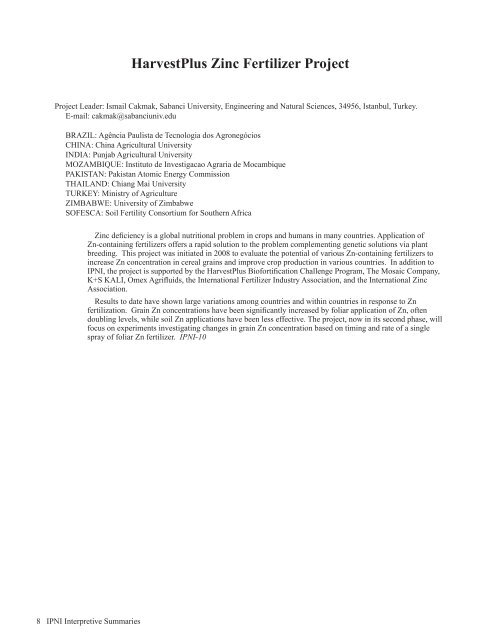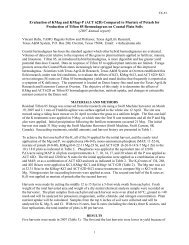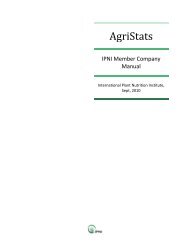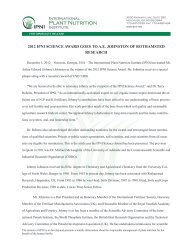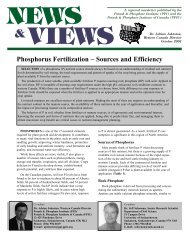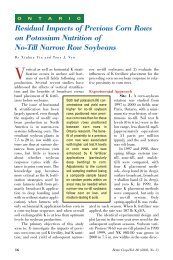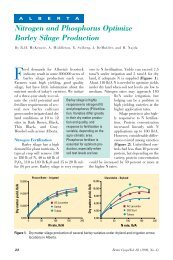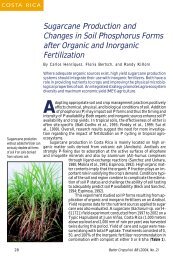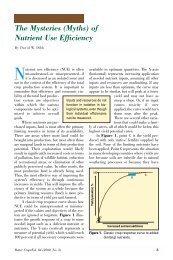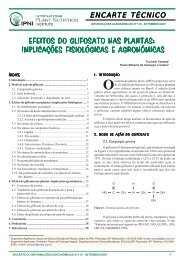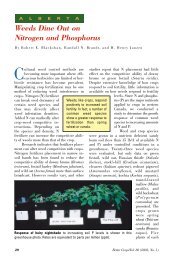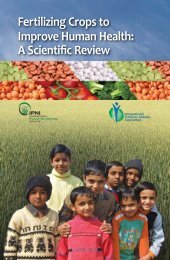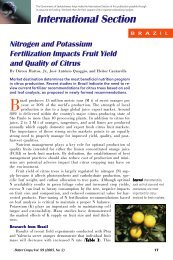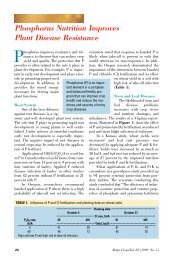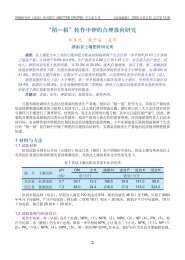Americas and Oceania Group - International Plant Nutrition Institute
Americas and Oceania Group - International Plant Nutrition Institute
Americas and Oceania Group - International Plant Nutrition Institute
Create successful ePaper yourself
Turn your PDF publications into a flip-book with our unique Google optimized e-Paper software.
HarvestPlus Zinc Fertilizer Project<br />
Project Leader: Ismail Cakmak, Sabanci University, Engineering <strong>and</strong> Natural Sciences, 34956, Istanbul, Turkey.<br />
E-mail: cakmak@sabanciuniv.edu<br />
BRAZIL: Agência Paulista de Tecnologia dos Agronegócios<br />
CHINA: China Agricultural University<br />
INDIA: Punjab Agricultural University<br />
MOZAMBIQUE: Instituto de Investigacao Agraria de Mocambique<br />
PAKISTAN: Pakistan Atomic Energy Commission<br />
THAILAND: Chiang Mai University<br />
TURKEY: Ministry of Agriculture<br />
ZIMBABWE: University of Zimbabwe<br />
SOFESCA: Soil Fertility Consortium for Southern Africa<br />
Zinc deficiency is a global nutritional problem in crops <strong>and</strong> humans in many countries. Application of<br />
Zn-containing fertilizers offers a rapid solution to the problem complementing genetic solutions via plant<br />
breeding. This project was initiated in 2008 to evaluate the potential of various Zn-containing fertilizers to<br />
increase Zn concentration in cereal grains <strong>and</strong> improve crop production in various countries. In addition to<br />
IPNI, the project is supported by the HarvestPlus Biofortification Challenge Program, The Mosaic Company,<br />
K+S KALI, Omex Agrifluids, the <strong>International</strong> Fertilizer Industry Association, <strong>and</strong> the <strong>International</strong> Zinc<br />
Association.<br />
Results to date have shown large variations among countries <strong>and</strong> within countries in response to Zn<br />
fertilization. Grain Zn concentrations have been significantly increased by foliar application of Zn, often<br />
doubling levels, while soil Zn applications have been less effective. The project, now in its second phase, will<br />
focus on experiments investigating changes in grain Zn concentration based on timing <strong>and</strong> rate of a single<br />
spray of foliar Zn fertilizer. IPNI-10<br />
8 IPNI Interpretive Summaries


